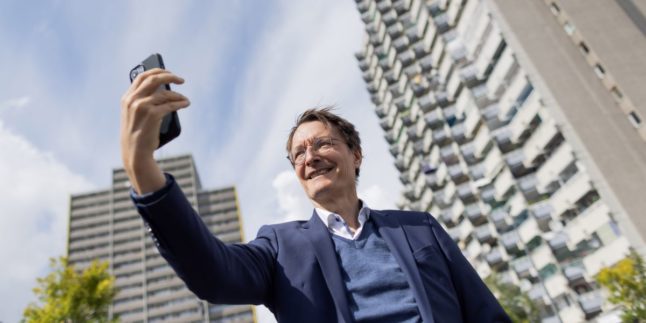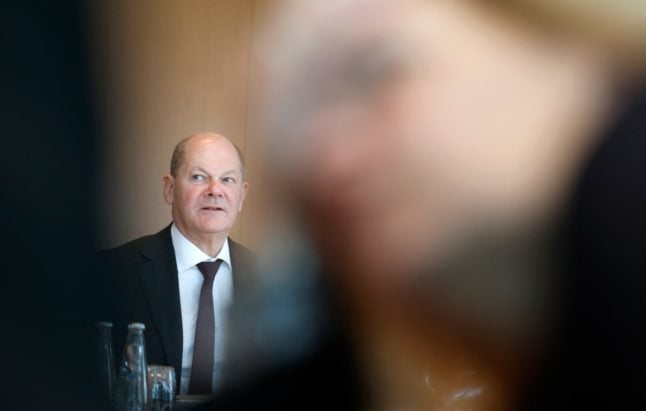On social media the AfD party has significantly more reach than Germany’s other political parties, suggesting that the alt-right party may have an outsized influence on young voters.
Findings from recent media analysis research published by ZDF Huete confirmed that AfD is significantly more successful than the other major parties on TikTok and Youtube, the two top social media outlets used by young people.
For example, TikTok videos posted by the AfD’s official channel reached an average of 430,000 impressions per video between January 2022 and December 2023.
In comparison, Germany’s other leading parties weren’t even close. The runner-up party was the FDP, with only about 53,000 impressions per video. The remaining parties had even less reach on the app.
With TikTok being used by about 22 million Germans, the AfD’s considerable influence on the app is not to be taken lightly.
Could TikTok content influence European politics?
Ahead of European elections this summer, there is reason for concern that the AfD’s ability to reach young voters on social media could give the party an advantage. European citizens aged 16 or older are able to vote in the European elections in June.
According to research published by Springer, a quarter of people aged 13 to 24 now use social media as their main source of news.
In the past, the AfD did not poll well among young voters. The party’s efforts to communicate on TikTok can perhaps be seen as an effort to change that.
Maximilian Krah, the AfD’s top candidate in the European elections, has been particularly successful at reaching hundreds of thousands of people on the app.
Krah demonstrates an understanding of the kind of videos that tend to spread on the platform – his videos are short, and quickly edited.
In one video that gained 1.4 million views he begins by suggesting that one in three young men has never had a girlfriend, and then ends with: “Don’t let anyone tell you that you have to be nice…Real men are right-wing.”
READ ALSO: Bremen’s state government wants to push for an AfD party ban
That is far from Krah’s most polarising content. In fact, some of his messages were so radical that TikTok cut his reach in March 2024 and took down some of his videos.
But such moderation tactics have a limited effect on an app built on users’ ability to instantly repost and reply to other videos. While Krah was partially muted on the app, sound-bites and reposts of his content continued to spread.
Why has the AfD seen success on TikTok?
It’s long been understood that by promoting content that generates the most views, comments and shares, the algorithms used by social media platforms have a tendency to amplify controversial and extreme views – like populist ideas.
Political scientist Julian Hohner, who wrote his doctoral thesis on radicalisation on the Internet, told Tagesschau, “The latest studies show that the AfD or right-wing parties from Europe use the platform much more effectively and successfully than centrist politicians.”
Additionally, the AfD gained a significant head start by getting on the platform early on.
Hohner suggests that parties on the political fringes have often been “early adopters” of new technologies. In the recent past this was also the case with YouTube and Telegram.
Germany’s more centrist parties struggle to catch up
Until recently, Germany’s centrist parties relied on tried-and-tested digital channels. But it seems that, due to the AfD’s success on the app, other politicians are waking up to the fact that the platform has become a valuable communication tool.
In response to right-wing ideologies spreading on the app, some political activists and organisations have tried to introduce the hashtag #ReclaimTikTok. German face of the Fridays For Future movement, Luisa Neubauer has joined in using the hashtag, for example.
For his part, German Chancellor Olaf Scholz opened a TikTok account on Monday, with a promise that he would not be caught dancing on the app. The Chancellor gained a bit of social media street cred last year for embracing a pirate aesthetic after a minor accident caused him to wear an eye-patch for several days.
Health Minister Karl Lauterbach also said in an interview last Thursday that he aims to be on TikTok going forward. “I want to explain to young people what we actually do – in a language they understand,” the Health Minister told T-Online.
READ ALSO: German literature finds unlikely social media partner in TikTok
Can Germany’s leaders really connect with the online world?
Still, starting a social media account and using social media effectively are two different things. There are plenty of examples of cringe-worthy content published by German political parties that could make one wonder if senior politicians jumping on TikTok is really a good idea.
For example, to celebrate the inclusion of the wolf in a state hunting law, the Mecklenburg-Western Pommerania chapter of the CDU recently posted a video on Instagram of two Members of Parliament dressed up as the Big Bad Wolf and Little Red Riding Hood.
“Now I don’t need to eat you anymore, but I can lick you way better,” CDU MP Thomas Diener says in the video. A write-up in TZ noted that a top comment on the video read, “The C in CDU stands for Cringe”.
In 2021, a project called “CDU Connect” was created specifically to promote the party online with memes — such as a picture of Angela Merkel and other politicians wearing headphones with the caption, “Utz Utz, we provide the right beats & vibes in the cabinet.” A report by RND notes how well these memes were received by the younger internet audience: “The site is really the finest Boomer cringe,” read one comment that sums it up.
Around that same time the CDU’s youngest Member of Parliament, Philipp Amthor, organised a live-gaming event on Twitch. But the promotion backfired when young gamers ridiculed Amthor and the CDU severely during the event.
More recently, Germany’s Finance Minister attempted to gain a bit of social media street cred by tweeting, “Soo, Bubatz bald legal”, on X in response to the new cannabis legalisation bill passing. But the post was met with some mockery — both of the fact that no one really uses the word ‘bubatz’ anymore and of the fact that Lindner added a broccoli emoji to represent marijuana.
READ ALSO: German word of the day: Bubatz
Whether Germany’s leading traffic-light coalition parties can effectively reach young voters on TikTok remains to be seen. Hopefully, they’ll be smart enough to test their content on young voter focus groups before they hit publish.



 Please whitelist us to continue reading.
Please whitelist us to continue reading.
Member comments